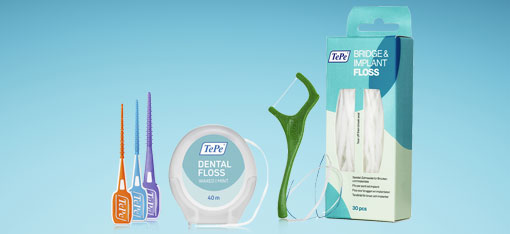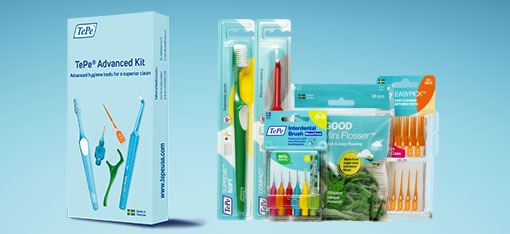Oral Cancer Awareness Month
April is Oral Cancer Awareness Month, which raises awareness about oral cancer and the importance of completing self-exams. Oral Cancer occurs in the oral cavity or the oropharynx (neck and throat). The oral cavity consists of your lips, the inside of your lips and cheeks, teeth, gums, the front two-thirds of your tongue, and the floor and roof of your mouth. The oropharynx consists of the middle region of the throat, including the tonsils and base of the tongue.
Facts about Oral Cancer
- Approximately 54,000 people diagnosed each year in the United States
- 9,750 people will die from oral cancer this year
- 1 person dies every hour
- 43% of those diagnosed won’t survive more than 5 years.
Risk Factors
- Tobacco products: cigarettes, pipes, cigars, vaping, or smokeless tobacco
- Alcohol consumption
- Combination of tobacco and alcohol
- Infection of the human papillomavirus (HPV)
- Other conditions: chronic physical trauma, infectious diseases, poor nutrition, poor oral hygiene
- Age 50+ (although a younger population is getting more oral cancer related to HPV)
Signs & Symptoms
Here are possible signs and symptoms of oral and oropharyngeal cancer. Signs and symptoms are persistent and not resolving, so see a dental professional if you’ve had for two weeks or more. You can always call your dental professional right away if you have any immediate concerns.
- Any sore or ulceration that does not heal within 14 days
- A red, white, or black discoloration of the soft tissues of the mouth
- Any abnormality that bleeds easily when touched
- A lump or hard spot in the tissue, usually the border of the tongue
- Tissue raised above that which surrounds it, a growth
- A sore under a denture, which even after adjustment of the denture, that does not heal
- A lump or thickening that develops in the mouth
- A painless, firm, fixated lump on the outside of the neck, that has been there for at least two weeks
- Difficulty swallowing, chewing, speaking, or moving your tongue or jaw
- Feeling like something is caught in your throat, numbness, hoarseness, or a change in voice
How to perform an oral cancer self-exam
The good news is, if oral cancer is caught early, the long-term survival rate increases. Early detection is key! Did you know that you can complete a routine self-exam once a month on yourself?
Perform this 7-step oral cancer self-exam once a month. At each step you are looking for anything unusual, especially any lumps, red or white patches, changes in color/texture or lingering ulcers. Remove dentures or any removable appliances prior to self-exam.
You will need a mirror, a good light source, and clean fingers. A piece of gauze may be used to effectively examine the tongue. A small package of 2X2 gauze is available at most drug stores.
Step 1: Face Look at the entire face for swellings you have not noticed before and inspect your skin.
Step 2: Neck Run your fingers under your jaw and feel along the large muscle on either side of your neck. Are there any swellings? Does everything feel the same on both sides? Feel for anything firm, doesn’t move about easily when pushed on, enlarged, and it is often painless.
Step 3: Lips Pull your upper lip upwards and bottom lip downwards. Look inside for any sore or changes in color.
Step 4: Gums Use your thumb and forefinger to examine your gums.
Step 5: Cheeks Open your mouth and pull your cheek out, one side at a time, with your finger. Look for any red or white patches. Check for ulcers, lumps, or tenderness.
Step 6: Tongue Gently pull out your tongue and look at one side first and then the other. Look under your tongue by lifting the tip of your tongue to the roof of your mouth. Look for any swelling, ulcers, or change in color.
Step 7: Floor and Roof of Mouth Tilt back your head and open your mouth wide to inspect the roof of your mouth. Lift your tongue up and look underneath at the floor of your mouth. Gently press your finger along the floor of you mouth and under your tongue. Observe changes in color, lumps, swellings, or ulcers.
The Oral Cancer Foundation’s Check Your Mouth TM created a self-discovery initiative that looks for signs and symptoms of oral cancer between dental visits. At https://checkyourmouth.org/wp/ you can also find steps with pictures on how to complete your own thorough self-exam.
What to expect during your dental visit
During your regular exam, your dental professional will ask you about changes in your medical history and whether you’ve been having any new or unusual symptoms. Next, they will do an oral cancer screening to check for any signs or symptoms. If there is a suspicious area, they may want to refer you to a specialist who will either monitor, do a biopsy, or provide treatment. During a biopsy, a sample of the area will be taken for a more detailed look at the tissue to see if it is cancerous. It is important to have a diagnosis as early as possible.
Treatments
Treatment of oral cancer often involves surgeons, radiation oncologists, chemotherapy oncologists, dental practitioners, nutritionists, and rehabilitation and restorative specialists. Many times, treatment includes chemotherapy with radiation, and sometimes combined with surgery to remove the cancer. Every case is unique, and it depends on the stage of cancer. When oral cancer is caught at a later stage, the results of surgical removal often require reconstruction of portions of their oral cavity and facial features. Adjunctive therapy may be required to assist in speech and chewing foods.
The tongue is a common area for oral cancer.
Common areas for oral cancer to develop are the tongue and floor of the mouth. Individuals that use chewing tobacco, are more likely to develop in the area between the lip or cheek and the gums where the chewing tobacco is held repeatedly. Oral cancer is becoming more common at the base of the tongue at the back of the mouth, back of the throat, and near the tonsils, particularly in young non-smoking individuals and often related to HPV.
The importance of the tongue
You don’t often realize how essential your tongue is in your everyday life. Your tongue helps you taste, eat, digest, and speak. While you chew the tongue assists with moving the food and swallowing. The small bumps, or papillae, on the tongue allow you to taste. The tongue is an agile and flexible muscle, giving it the ability to produce many words. The tip of the tongue is sensitive, allowing it to assist in cleaning the mouth and alerting us to different concerns. Your tongue is a very useful muscle in your body. Also, remember to keep your tongue clean with the TePe GOOD™ tongue cleaner.
Cleaning your tongue using the TePe GOOD TM Tongue Cleaner
The tongue has many areas for bacteria to hide, so it is important to disrupt this layer of bacteria as part of your daily oral hygiene routine. The TePe GOOD TM Tongue Cleaner is designed to correspond with the natural shape of the tongue, which reduces the gag reflex and makes it easier to reach far back in the mouth. The three, slightly raised cleaning blades give a triple-effect, allowing bacteria to be removed with one stroke. TePe GOOD TM tongue cleaner is made from bio-based plastic, meaning the carbon footprint is reduced during production.

TePe Oral Health Care is a Proud Partner of National Breast Cancer Foundation, Inc.®

Throughout April there is a focus on oral cancer, and as dental professionals we know the importance of whole-body health. There are multiple self-exams you can perform to detect cancer early, and early detection could lead to better long-term outcomes and survival.
TePe Oral Health Care believes in prevention and whole-body health, so we have partnered with National Breast Cancer Foundation. The aim of the Pink Ribbon campaign is to provide help and inspire hope to those affected by breast cancer through early detection, education, and support services. For more information about National Breast Cancer Foundation and for ways that you can get involved– click here!

Read more:
Oral Cancer Foundation http://www.oralcancer.org











Leave a comment